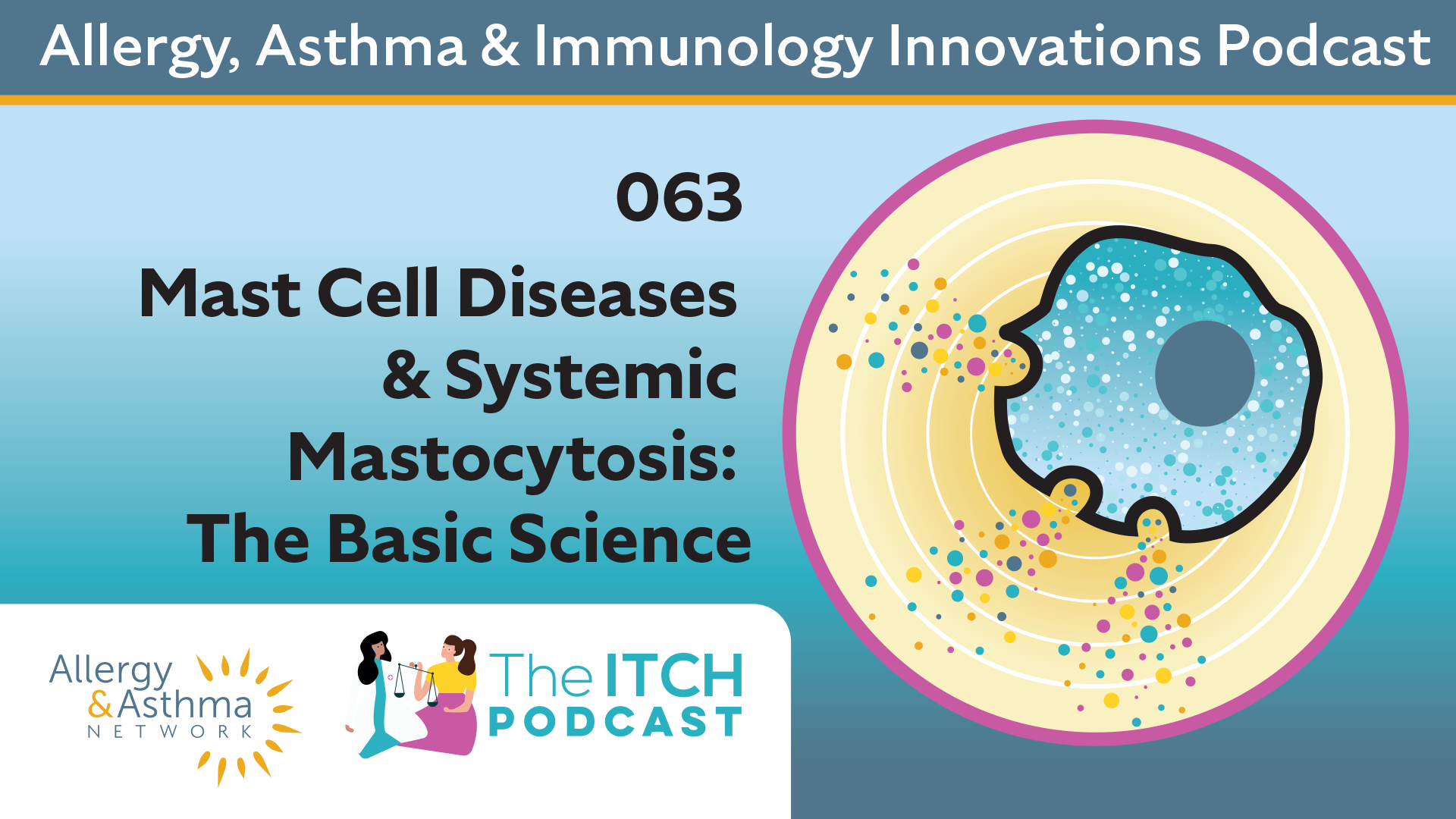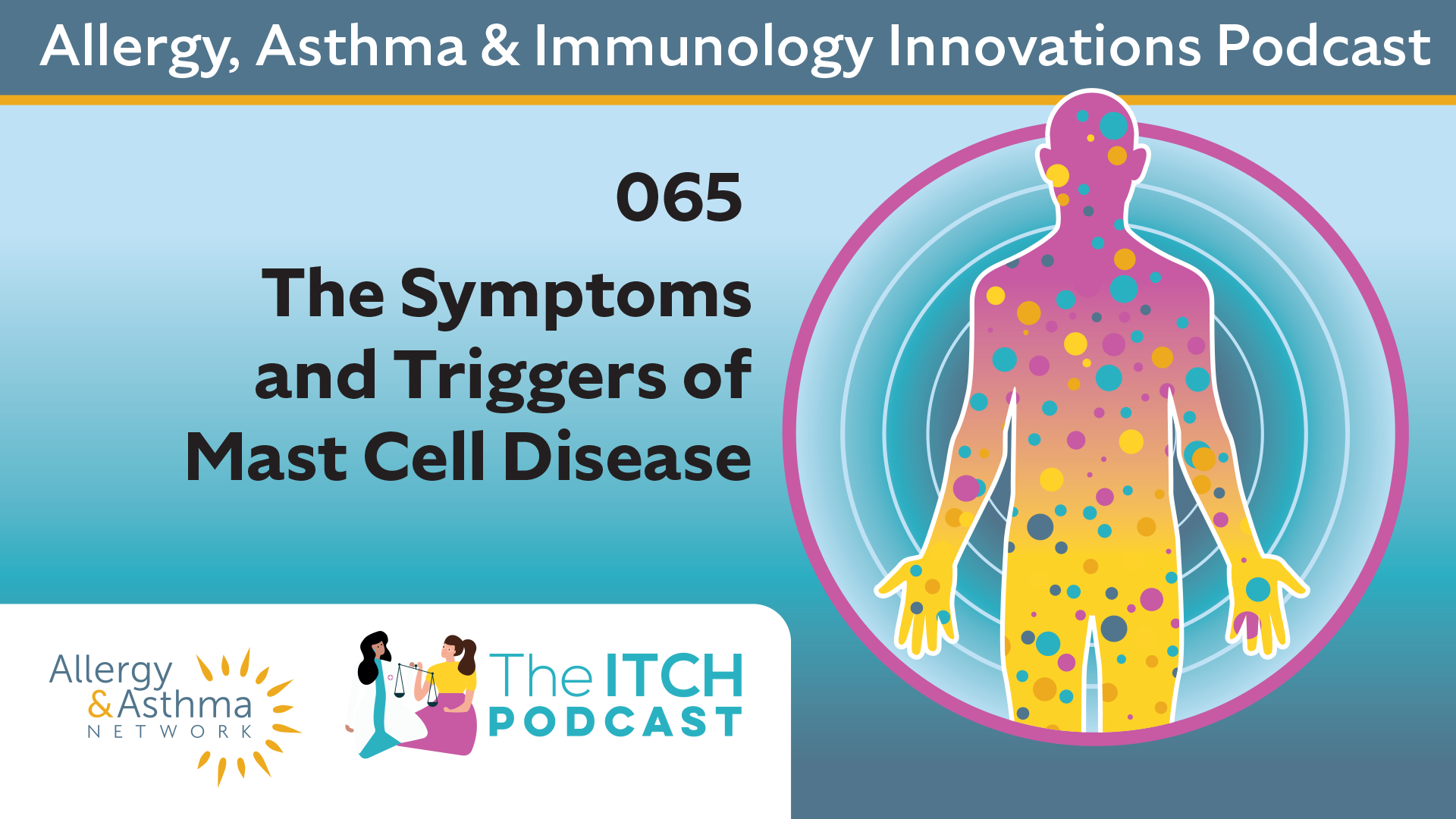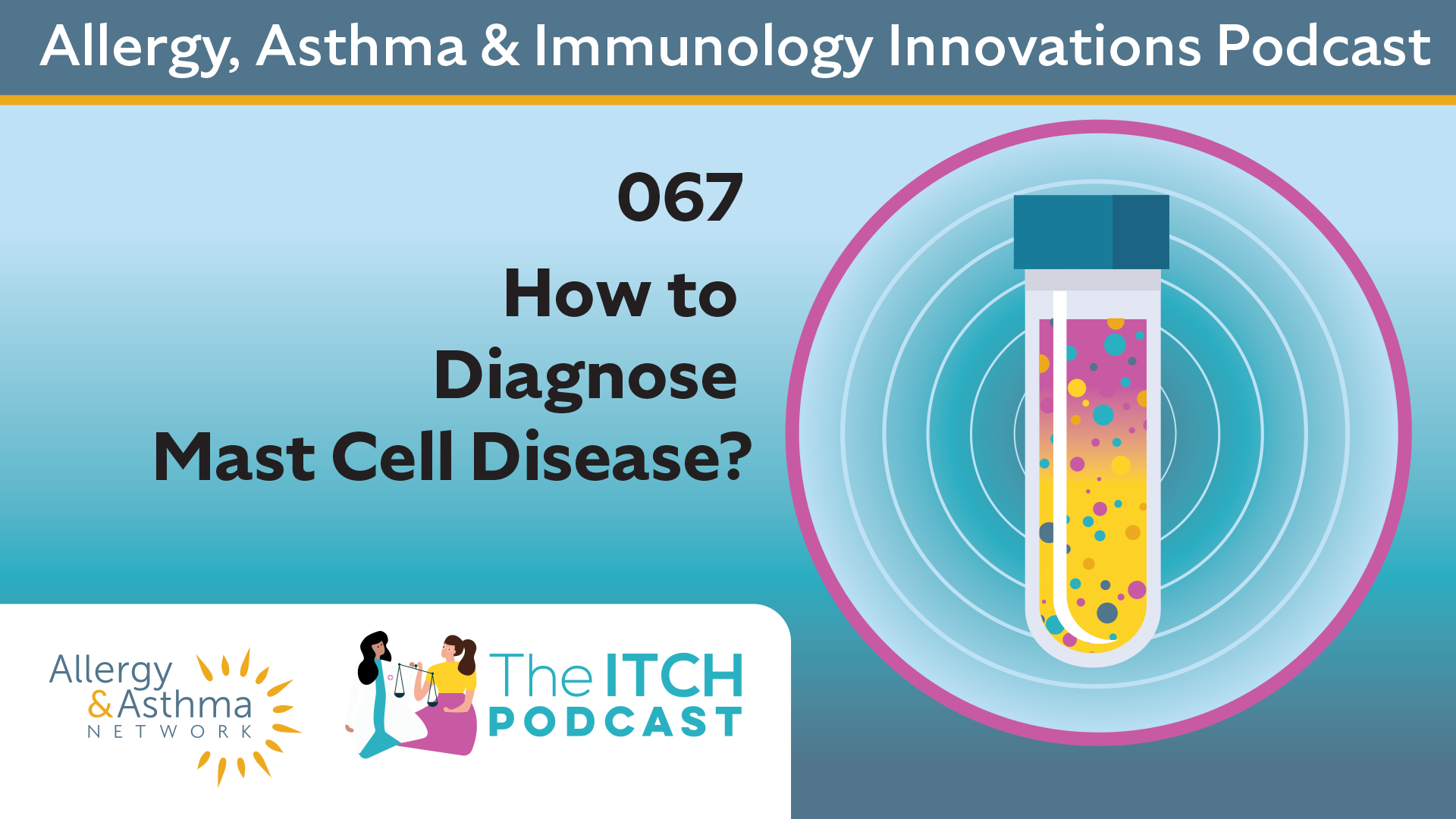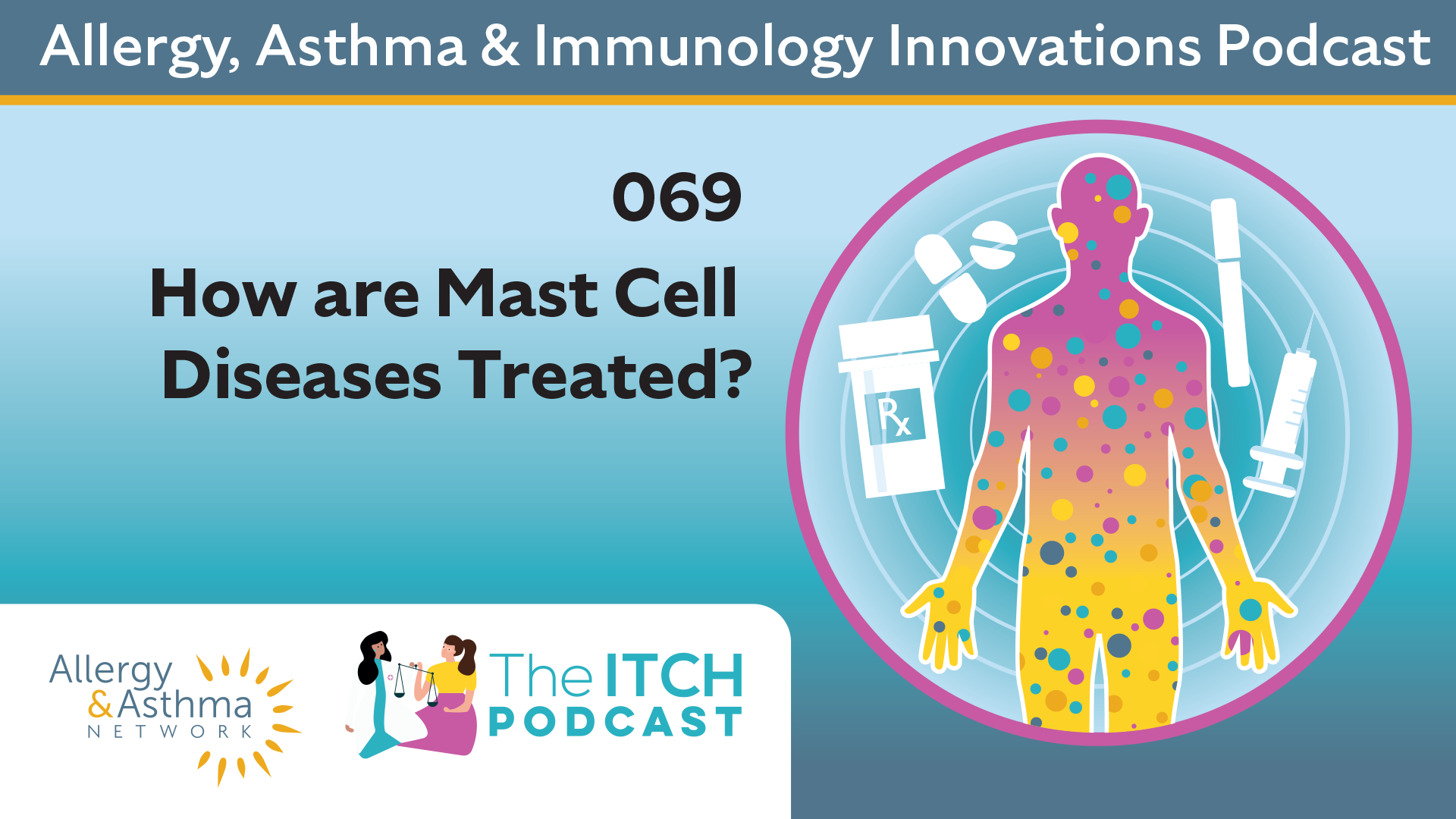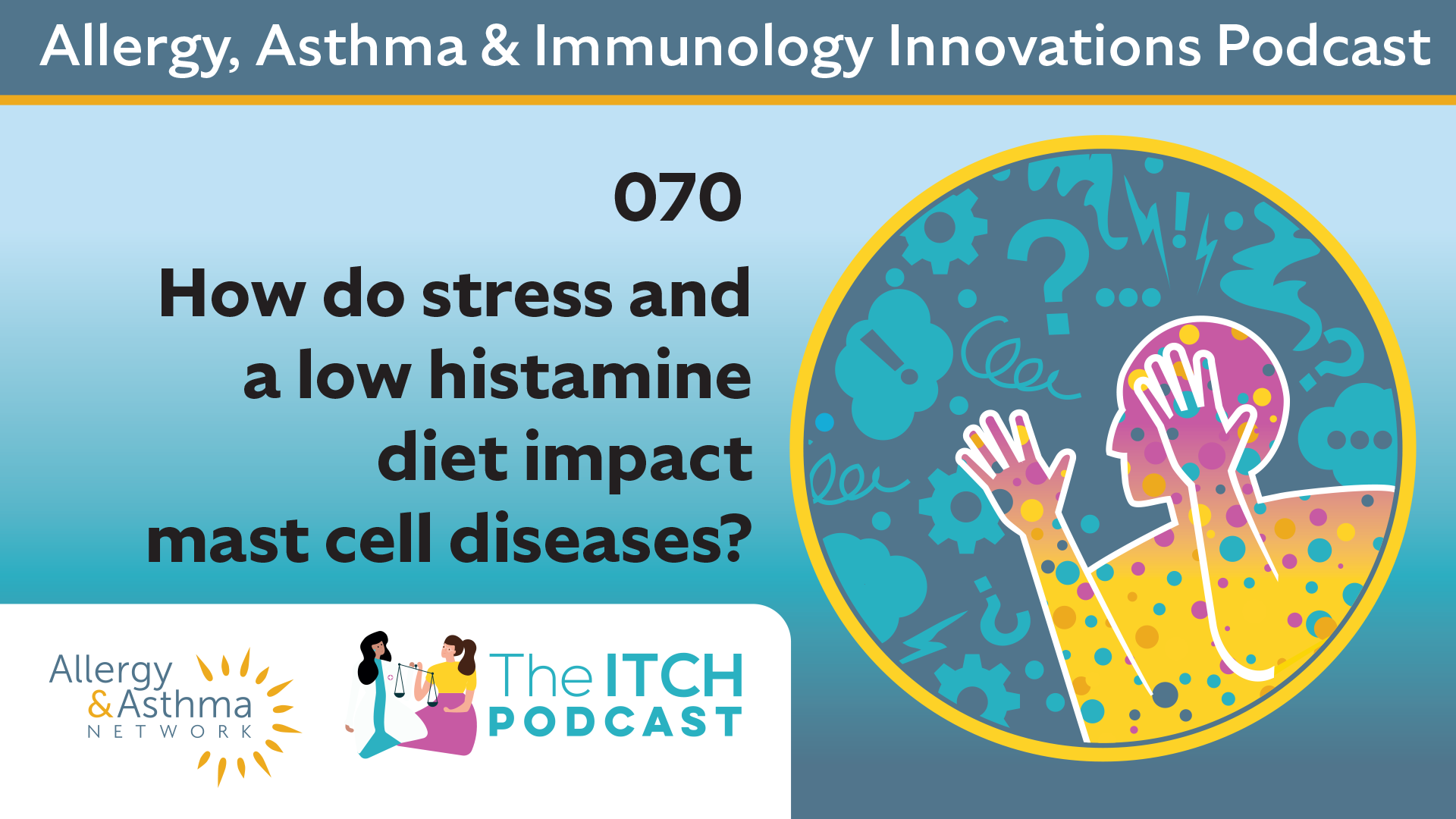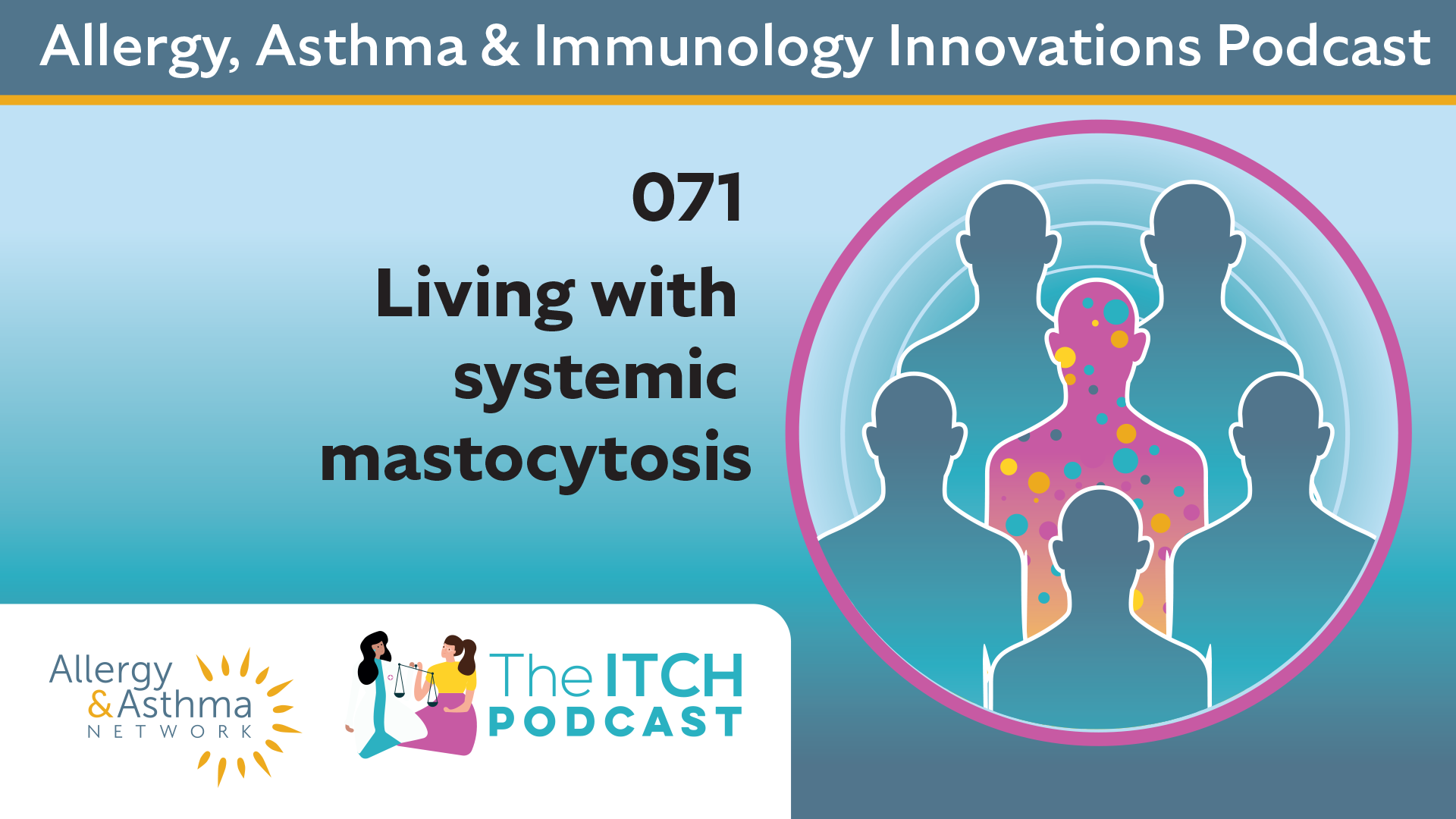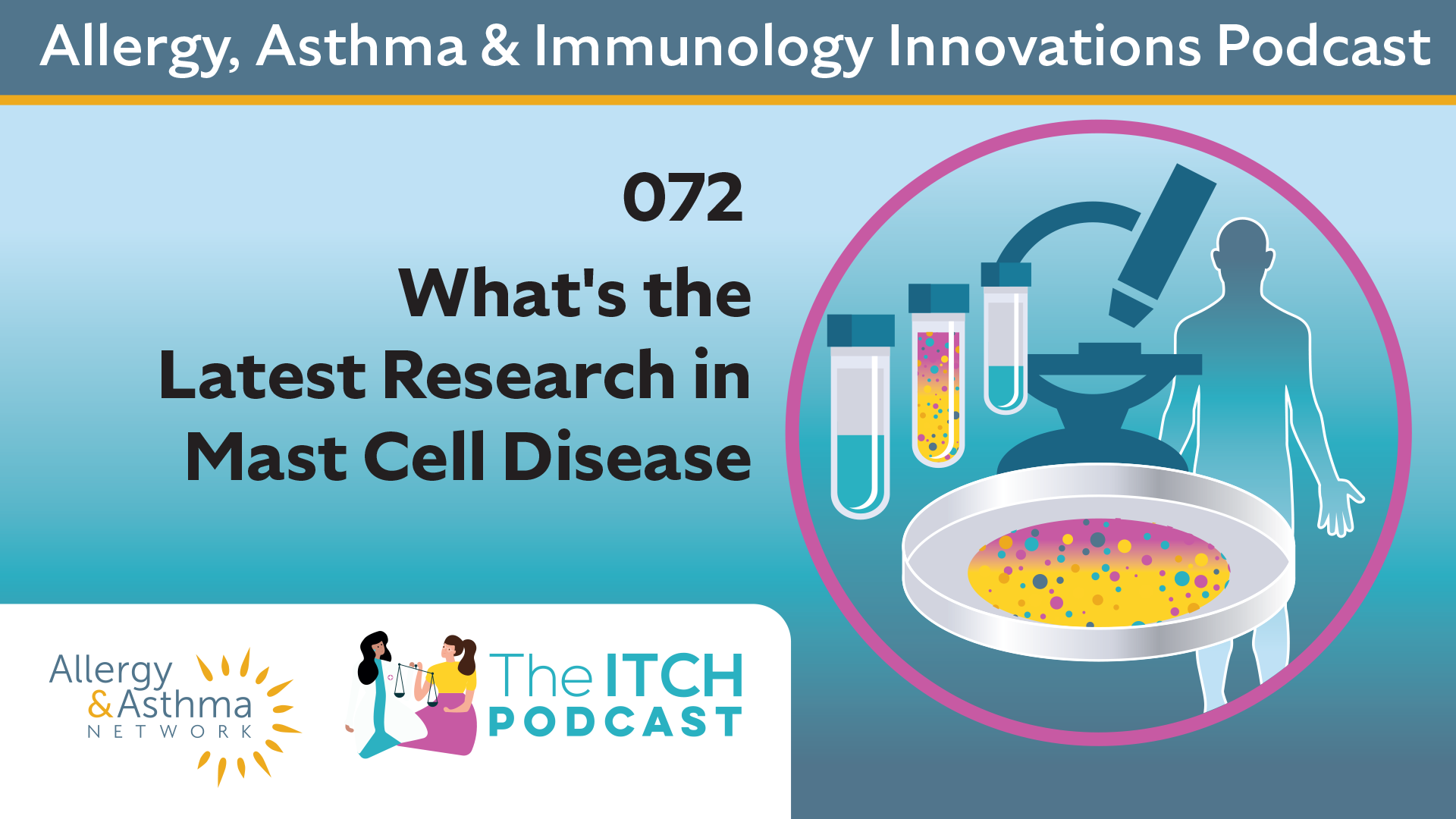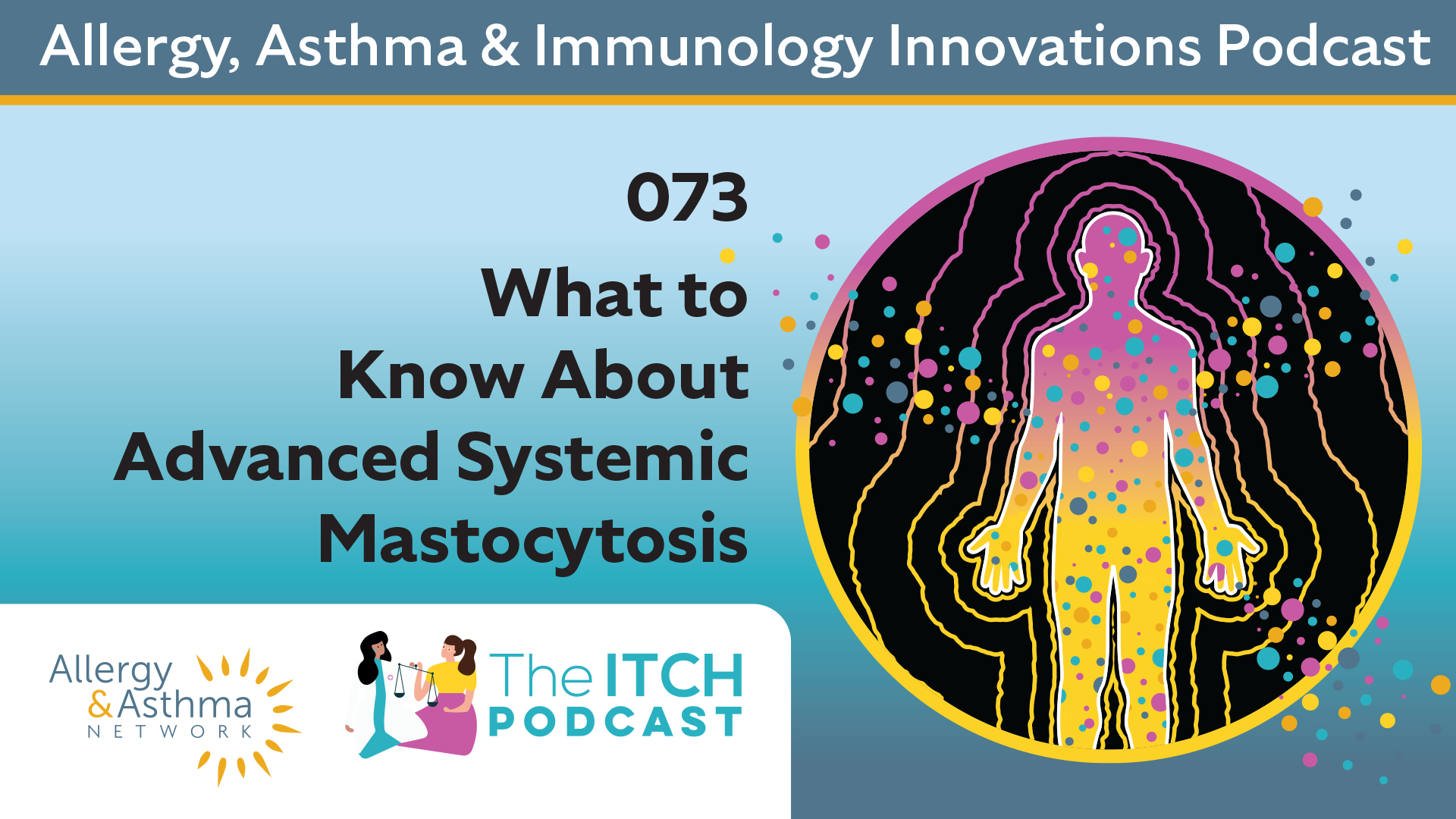Ep. 69 How are Mast Cell Diseases Treated?
Part of the series: Allergy, Asthma & Immunology Innovations Podcast
This podcast was made in partnership with Allergy & Asthma Network. We thank Blueprint Medicines for sponsoring this podcast.
LISTEN TO EPISODE 69:
iTunes • Spotify• Google • Amazon Music • YouTube
Where do you begin with mast cell disease treatment when there is such variation among patients?
Dr. Milner is back with us to discuss the difficulties in treating mast cell activation syndrome and mastocytosis. We will discuss the different approaches to treating mast cell disease and the medications used for mastocytosis treatment. Since no single treatment plan works for everyone, we will explore multiple strategies that can be helpful in managing this condition.
A note: when you hear MCAS mentioned, it stands for Mast Cell Activation Syndrome.
What we cover in our episode about treating mast cell diseases:
What are the steps taken to treat mast cell diseases?
Histamine blockers: antihistamines for mast cell disease and H2 blockers
Mast cell stabilizers: Cromolyn and Ketotifen
Xolair
Other medications that have been used but not recommended: aspirin, steroids, Singulair
Epinephrine and anaphylaxis
Tyrosine kinase inhibitors (TKI) for Mastocytosis: Avapritinib, Midostaurin
Safety concerns and side effects of Tyrosine kinase inhibitors
Multidisciplinary approach to managing mast cell disease
About our guest - Dr. Josh Milner
Joshua Milner, MD, is a renowned leader in discovering and understanding genetic diseases leading to allergic symptoms, including Hereditary Alpha Tryptasemia Syndrome, PLAID, PGM3 deficiency, ERBIN mutation, and others. With a background in biology from MIT and an MD with distinction in immunology from Albert Einstein College of Medicine, Dr. Milner has extensive experience in pediatrics and allergy and immunology, serving as chief of the Laboratory of Allergic Diseases at NIAID.
His vision is to leverage genetic variation to improve diagnosis and care for patients with allergic diseases through comprehensive genetic sequencing and functional studies, aiming for personalized medicine and interdisciplinary collaboration in pediatric allergy, immunology, and rheumatology.
More about Dr. Milner:
More in the Mast Cell Disease Series:
Resources about mast cell disease:
Mast Cell Disease Overview: https://allergyasthmanetwork.org/health-a-z/mast-cell-diseases/
What is Anaphylaxis? https://allergyasthmanetwork.org/anaphylaxis/
What is Epinephrine? https://allergyasthmanetwork.org/anaphylaxis/what-is-epinephrine/
The Mast Cell Disease Society: https://tmsforacure.org/
FDA Approves AYVAKIT® (avapritinib) as the First and Only Treatment for Indolent Systemic Mastocytosis: https://ir.blueprintmedicines.com/news-releases/news-release-details/fda-approves-ayvakitr-avapritinib-first-and-only-treatment
What is used to treat mast cell disease?
There's currently no single "best" treatment for MCAS. For all mast cell diseases, the optimal approach is tailored to your needs and circumstances, so working closely with your doctor is crucial. As for systemic mastocytosis treatment, we discussed using Tyrosine Kinase Inhibitors (TKI).
Histamine Blockers: A combination of H1 and H2 blockers is used as a first line of defence to target H1 and H2 receptors and mitigate histamine-related symptoms specifically.
H1 Blockers: second-generation antihistamines. Examples include Cetirizine (Zyrtec), Loratadine (Claritin, Alavert)
H2 Blockers: Histamine H2-receptor antagonists, also known as H2-blockers, are primarily used to manage stomach acid. Examples include Pepcid, Tagamet, and Zantac.
Mast Cell Stabilizers: These medications take a preventative approach, hindering mast cells from releasing histamine and other inflammatory substances.
Cromolyn: used when experiencing gut issues
Ketotifen: used when primary concerns are flushing, swelling and skin problems.
Xolair: This injectable medication, containing omalizumab, targets a specific molecule involved in the immune system's allergic response. It treats chronic spontaneous urticaria and can benefit some individuals with mast cell activation syndrome (MCAS).
Epinephrine and Anaphylaxis: Individuals with mast cell disease may have a higher risk of anaphylaxis, a severe allergic reaction requiring immediate medical attention. Carrying an epinephrine auto-injector is crucial for emergency preparedness.
Indolent & Systemic Mastocytosis Treatment
Tyrosine Kinase Inhibitors (TKIs): These medications target specific types of mastocytosis characterized by abnormal mast cell growth.
Avapritinib: is approved for treating indolent systemic mastocytosis, adult patients with advanced systemic mastocytosis (AdvSM), including patients with aggressive systemic mastocytosis (ASM), systemic mastocytosis with an associated hematological neoplasm (SM-AHN), and mast cell leukemia (MCL).
Monitoring and Tracking Treatment Efficacy For Treatments
Monitoring the effectiveness of medications and tracking the progression of mast cell diseases is crucial. This involves assessing symptoms over time and adjusting treatment plans as needed to ensure optimal management.
Multidisciplinary Approach to Treating Mast Cell Diseases
Managing mast cell disease often benefits from a collaborative effort between different healthcare professionals, depending on your specific needs. This may involve allergists, dermatologists, gastroenterologists, therapists and others working together to provide comprehensive care.
Treating mast cell diseases involves a multidisciplinary approach and a thorough understanding of the available treatment options. By working closely with healthcare providers and staying informed about the latest research developments, individuals with mast cell diseases can effectively manage their condition and improve their quality of life.
Time Stamps
Ep. 69 How are Mast Cell Diseases Treated?
00:01:09 - What are the steps taken to treat mast cell diseases?
00:02:30 - Histamine blockers: antihistamines for mast cell disease and H2 blockers
00:03:30 - Mast cell stabilizers: Cromolyn and Ketotifen
00:08:18 - Xolair
00:09:40 - There is no randomized trial for mast cell activation syndrome for best treatment interventions
00:10:22 - Other medications that have been used but not recommended: aspirin, steroids, Singulair
00:11:32 - Timeframe for MCAS and how to track the medications are working
00:13:07 - Epinephrine and anaphylaxis
00:14:17 - Tyrosine kinase inhibitors (TKI) for Mastocytosis: Avapritinib, Midostaurin
00:18:00 - Safety concerns and side effects of Tyrosine Kinase Inhibitors
00:19:07 - Multidisciplinary approach to managing mast cell disease

